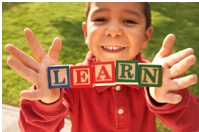|
 |
|
 |
Aristotle - Philosophy, Ethics and Happiness
Aristotle (384-322 BC)
Greek philosopher (pictured right) , student of Plato and teacher of Alexander the Great. He was an expert in ethics, physics, biology, politics, economics, literature and psychology!
His most famous book is... He wrote many great works including Nicomachean Ethics that had a huge effect on our ideas about ethics.
His tips on how to be happy and successful
1. Do your best at what your best at
a) do good Happy people use their virtues and knowledge to achieve something useful and worthwhile, particularly to:
b) do your best Choose something you’re really good at and work your hardest to make the most of your talent.
c) smile Overcome your problems by being positive and cheerful.
d) do your duty Do what is right and what you ought to do (your duty).
“Happiness depends upon ourselves”, Aristotle said.
2. Virtue and self-discipline Make these virtues a habit:
Good people are:
Morality is the habit of being virtuous through:
But this is difficult. “The hardest victory is over yourself”, he said.
3. The “Golden Mean” Every virtue lies in the middle of two related vices (the “Golden Mean”):
This view is also shared by the Chinese philosopher, Confucius (pictured right). Here are some examples:
4. Think, reflect and learn Learners are the best and happiest people, because “all men by nature desire to know”, he said. Work out the best thing to do after considering all the advantages and disadvantages of all your different options. Learning is:
“The roots of education are bitter, but the fruit is sweet”, Aristotle said. You learn and find knowledge from: a) experience Observing, doing and experimenting.
b) reason
Theory must be tested by practice and experience.
c) logic Make conclusions from related ideas. For example, all snowmen are made of snow, all snow is white, so all snowmen are white.
d) generalizations (e.g. fruit is good for you), But be aware of:
e) non-contradiction Aristotle’s principle of non-contradiction says: You can’t contradict what you do or say (e.g. your coat can’t be red, if it’s black).
f) listening and acting Listening to wise people and acting upon their advice.
5. Money Money is important but use it to do something useful and satisfying. Happiness doesn’t come from material pleasures, but from being good, loved and fulfilled. What you really need (like virtue and water) will make you happier than what you want (temptations and fizzy drinks!). People must buy less, because not enough can be produced to satisfy their unlimited wants.
6. Friends Close relationships are vital to your happiness. “Man is a social animal”, Aristotle said. Best friends:
7. Variety Doing new and different things make you happy. But work isn’t everything. Aristotle said we should educate ourselves to make the best use of our leisure, doing something useful, not just watching the TV! You can learn a lot about life from literature and drama.
8. Wisdom and experience He believed wise people are happiest and wisdom comes from:
So wisdom comes from experience, i.e. knowing and understanding the world. Don’t believe in anything you don’t experience (Aristotle’s principle of “saving the appearances”). So he attacked Plato’s (pictured right) Theory of Forms, which said there is a more important ideal world beyond this one.
9. Action and self-motivation What you do results from one or more of seven causes:
If you’re compelled to do something, it isn’t your fault. You must be determined to do what makes you happy and successful, whatever difficulties or temptations you face (i.e. the will to win).
10. Be law abiding Obey laws, if they are just and made by a democratic government. The government can’t make people good and happy but only help them to be so by making sure:
11. Understand how things change There are four reasons for change: a) material cause What it is made up - for example:
b) efficient cause How it is made - for example:
c) formal cause What gives it the shape by which it is identified - for example:
d) final cause Why something is made - for example:
Change requires stability, because the thing that changes must remain the same. For example, an organization or person changes but still remains an organization or person.
12. Think about the whole of your life Happiness isn’t just one happy event “One swallow does not make a summer”, Aristotle said. But you must work hard to:
Key quotes on fear and pain He who has truly overthrown his fears will truly be free. Suffering becomes beautiful when anyone bears great calamities with cheerfulness, not through insensibility but through greatness of mind.
Key quote on motivation Pleasure in the job puts perfection in the work. Man is a social animal
Key quotes on learning The energy of the mind is the essence of life. All men by nature desire to know.
Key quotes on ethics All persons ought to endeavour to follow what is right, and not what is established. The greatest virtues are those which are most useful to other persons.
Key quotes on education and wisdom It is the mark of an educated mind to be able to entertain a thought without accepting it. Wisdom is the reward you get for a lifetime of listening when you’d rather have been talking. The roots of education are bitter, but the fruit is sweet”,
Key quotes on happiness Happiness is the meaning and purpose of life One swallow does not make a summer.
Key quote on peace of mind The ultimate value of life depends on awareness and the power of contemplation.
Key quote on leadership He who is to be a good ruler must have first been ruled.
Key quote on quality Quality is not an act, it is a habit.
Key quote on science and wisdom Wisdom is both scientific knowledge and understanding about what is by nature most honourable.
Key quote on influencing people Good action...cannot exist without a combination of intellect and character.
Key quote on economics The weaker are always anxious for justice and equality. The strong pay no heed to either.
Key quote on society Poverty is the parent of revolution and crime. | ||||||||||||||||||
|
|
||
|
|
|
||
|
||
| Copyright © wisdomtowin.com All Rights Reserved | ||
|











